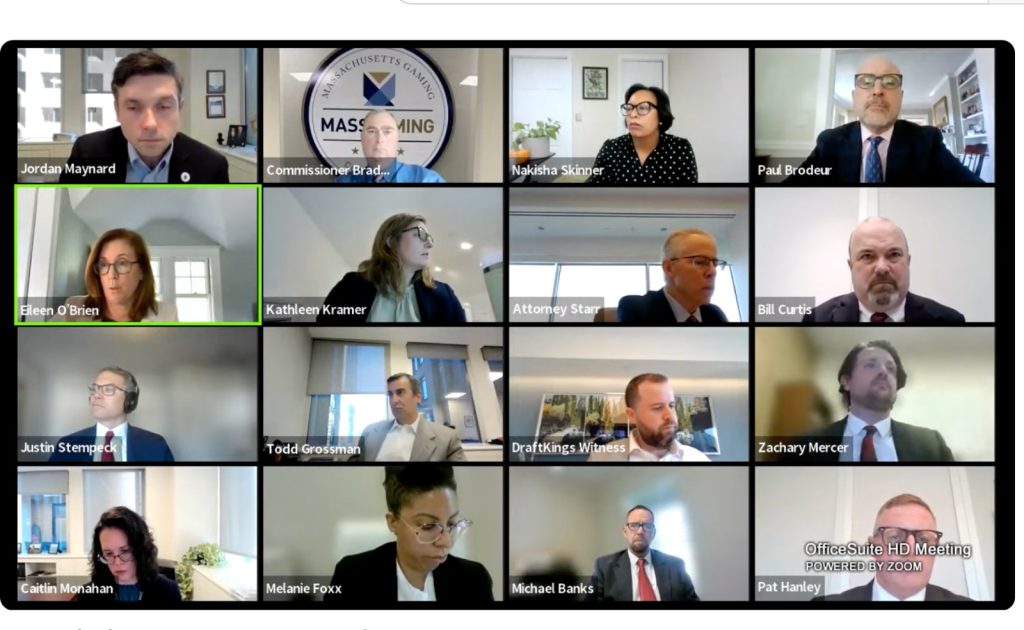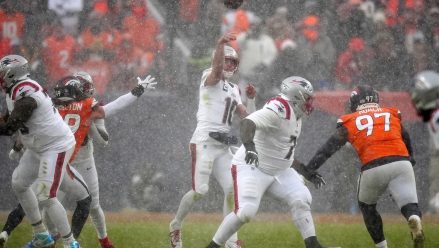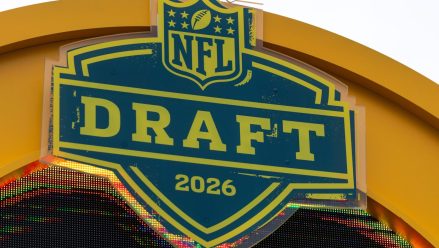The Massachusetts Gaming Commission (MGC) on Friday issued a $450,000 fine to DraftKings for taking credit card deposits, which are explicitly banned in the state. The fine is largest for a gambling violation against any gambling operator ever issued in the state, and is among, if not the, highest meted out to a wagering platform anywhere in the U.S. since the Professional and Amateur Sports Protection Act (PASPA) was overturned in 2018.
The reasons why the violations happened call into question compliance protocols at one of the biggest sports betting operators in the U.S.
Between March 10, 2023-Feb. 13, 2024, DraftKings allowed 1,160 wagers from 218 customers who had made a total of 242 credit-card deposits into their accounts. The total wagered via the credit-card deposits was $83,667.92. The MGC instructed DraftKings to return those bets.
During hearings about this issue last fall, a key question was how an operator could allow credit-card deposits in a state that explicitly bans them. The answer is relatively simple — DraftKings, and most major operators, offer a universal wallet. So a bettor in New York or Colorado or Massachusetts can access funds across state lines. But in Colorado, bettors can fund accounts with credit cards. Which means that in Massachusetts, those funds must somehow be flagged and may not be used.
According to the decision document released by the MGC Friday, DraftKings has the ability to block credit-card funding, and does so in Tennessee, where betting by credit card is also banned. Illinois, and every New England state except Connecticut, also bans the use of funding wagering accounts by credit card. The company — and every other Massachusetts operator — must also block the use of funds of initially deposited by credit card, even if they were deposited in a jurisdiction where it is legal to do so.
The credit-card ban is one of many stringent rules that Massachusetts regulators have in place to protect consumers, and it applies universally to any accounst related to gambling, including sportsbook and daily fantasy sports. Operators have struggled with many of the rules, including the variable rules about wagering on Massachusetts college sports teams and availability of certain betting markets.
Technology to block is there
The technology component of blocking credit cards in a no-credit-card jurisdiction appears straightforward. But blocking deposits made by credit cards elsewhere isn’t quite as simple. Engineering a traveling wallet to discern where money came from and block its use in certain situations is in itself a complicated ask. Making sure all the boxes are checked for consumers in the state with the block is another step in the process.
Despite that, operators in Massachusetts have adapted. And it appears that DraftKings did as well, and that after initially identifying the problem, the issue became human error vs. technology.
The decision document and adjudicatory hearings revealed that DraftKings initially never got the information about exactly the credit-card ban to the right person. And a string of conversations in which the issue appeared to be handled — even before launch in March 2023 — indicate that inside DraftKings, the issue of blocking credit-card deposits may not have been viewed as a hard rule — or landed with the correct department.
DraftKings employees did not “forward the entirety of” an email from then MGC Executive Director Karen Wells outlining the use of credit card funds to the proper personnel. The same email was also not sent to the “Regulatory Operations Division as they did not interpret the questions as regulatory guidance.” The MGC sent the email to every licensed operator.
In addition, the employee at DraftKings managing questions about blocking credit-card deposits did not completely understand a question about out-of-state credit card deposits from the operator’s payments team.
“Ms. (Grace) Tate testified that she did not understand the question from Mr. (Dickson) Jay to be asking if DraftKings was currently preventing the Out-of-State Scenario, only that it was an inquiry whether DraftKings had the technical capability to prevent such a scenario,” reads the decision document.
Ultimately, critical emails were shared within the licensing and product team, but not the regulatory team. DraftKings, per the document, admitted that the email should have been shared, but also suggested that it misinterpreted the email.
No credit-card funding a repeated theme
About a month after go-live in 2023, the MGC in a public meeting discussed “the ability” of operators to block credit-card funding, and later shared the following text for operators to include in their house rules:
“In no event may a Massachusetts account be funded through a form of credit.”
DraftKings opted not to use the language verbatim and instead wrote into their house rules “In no event will you fund your account via a form of credit while physically located in Massachusetts,” according to the document.
Adding the phrase “while physically located in Massachusetts” was a critical change that potentially led bettors to believe that if they funded their DraftKings wallet with a credit card in, for example, neighboring Connecticut, they could use those funds in Massachusetts. It also showed that DraftKings itself believed that a credit-card deposit from another state would be acceptable in Massachusetts, just not one made within the state.
DraftKings self-reported the use of credit-card deposits to fund accounts in Massachusetts in May 2023. At that time, company executives said the issue had been addressed, but did not do an audit to confirm it. Two months later, on July 14, 2023, DraftKings filed a second incident report with the MGC stating that while doing an update in Tennessee, the company realized that the Massachusetts problem was not corrected. On July 26, 2023, DraftKings again found that some additional credit-card deposits had slipped through the cracks.
What’s written in MA stays in MA?
At the time of the adjudicatory hearings last fall, MGC commissioners voiced their frustration and anger at the repeated violations. In particular, Commissioner Eileen O’Brien challenged DraftKings executives who laid the blame on a “misunderstanding.”
O’Brien went so far as to read from the statutes and sparred with Senior Manager of Regulatory Operations Kevin Nelson over the rule. The exchange highlighted the disconnect between DraftKings and the MGC. Nelson told O’Brien that he was “reading the Massachusetts statutes and Massachusetts rules as being specific to Massachusetts.”

And then O’Brien and Nelson had the following exchange:
O’Brien: “The limiting language that you put into your house rules is not in those statutes or regulatory sites on the screen, are they, Mr. Nelson?”
Nelson: “You’re reference, just to make sure that I understand, you are referencing the updated house rules that we sent back in April or May?”
O’Brien: “And your interpretation as testified to here today, is that you thought there was a limitation to those restrictions that you had to be physically located in Massachusetts for them to apply.”
Nelson: “Yes, correct.”
O’Brien: “But it’s not there, is it, Mr. Nelson?”
Nelson: “Again, it’s not written directly in the regulations and statutes cited here, but I am reading the Massachusetts-specific regulations and statutes.”
O’Brien: “So is it your testimony that any regulation or statute in Massachusetts … can only restrict itself to the confines or boundaries of Massachusetts?”
Nelson: “My understanding of the regulations and the statutes is that they apply to specifically to sports betting in Massachusetts, yes.”
MGC: We reject DraftKings’ argument
In the end, the MGC did not accept Nelson’s or DraftKings’ arguments. Beyond the fine, the commission is not only requiring DraftKings to refund the more than $83,000 in bets, but also requiring DraftKings to finally fix the problem, and to have an internal audit by a third party conducted to determine if there were additional violations between the date of licensing and launch.
“Despite framing the matter as a ‘misunderstanding’ or an ‘anomalous series of events,’ it is undisputed that DraftKings’ actions and inactions constitute both statutory and regulatory violations of G.L. c. 23N, § 13(d), 205 CMR 247.07(7) and 205 CMR 248.10(3),” the decision document reads. “The Commission rejects the assertion that the statutory and regulatory requirements were subject to the interpretation put forth by DraftKings.”
DraftKings has 90 days from the date of the decision to hire an auditor, and another 90 days from the date of hire to complete the audit.








